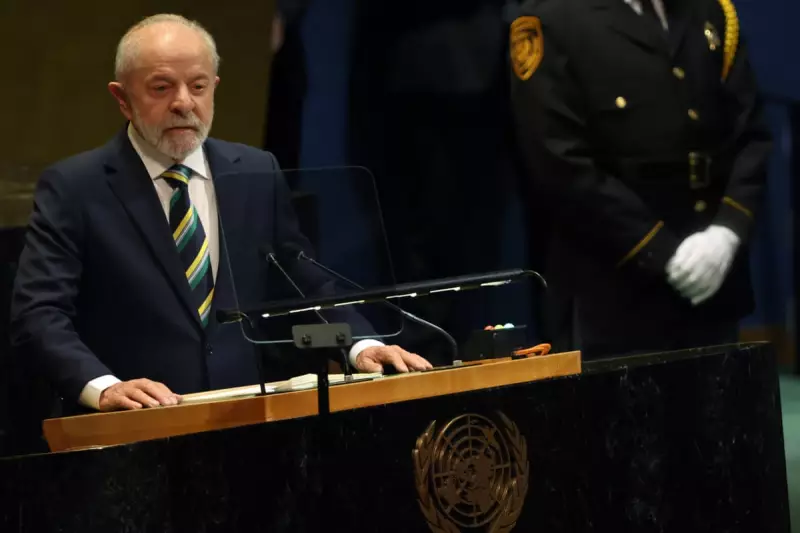
In a stirring address that resonated through the halls of the United Nations in New York, Brazilian President Luiz Inácio Lula da Silva launched a searing critique against the world's economic powers. The veteran leader condemned what he termed a new era of 'green colonialism', where environmental concerns are used to maintain global inequalities.
A Call for Financial Justice
President Lula didn't mince his words, directly challenging the dominance of wealthy nations in international finance. He demanded a radical overhaul of outdated institutions like the International Monetary Fund and the World Bank, arguing they perpetuate a system that 'strangles the development of the Global South'.
'It is unacceptable that countries that polluted the planet for centuries now lecture us on environmental preservation while maintaining a financial architecture that suffocates our economies,' Lula declared to assembled world leaders.
Key Demands from the Brazilian Leader
- Debt Relief for Developing Nations: Lula argued that crippling debt prevents countries from investing in green technologies and climate resilience.
- Fair Trade, Not Aid: He emphasised the need for equitable trade relationships over charity, stating that 'what we need is justice, not alms'.
- Amazon as a Global Responsibility: While reaffirming Brazil's sovereignty over the rainforest, he positioned its protection as a duty shared by all nations, contingent on financial support.
Contrasting Visions on the World Stage
The speech marked a dramatic shift from Brazil's stance under former President Jair Bolsonaro. Lula positioned himself as a leading voice for the developing world, a stark contrast to the climate-sceptic rhetoric of his predecessor. This assertive foreign policy signals Brazil's return to the forefront of global environmental diplomacy.
Analysts suggest the address was aimed as much at a domestic audience as an international one, reinforcing Lula's commitment to social and environmental justice following a polarising election. The powerful rhetoric sets the stage for contentious negotiations at upcoming climate summits, where the gap between the global north and south remains the central point of conflict.






